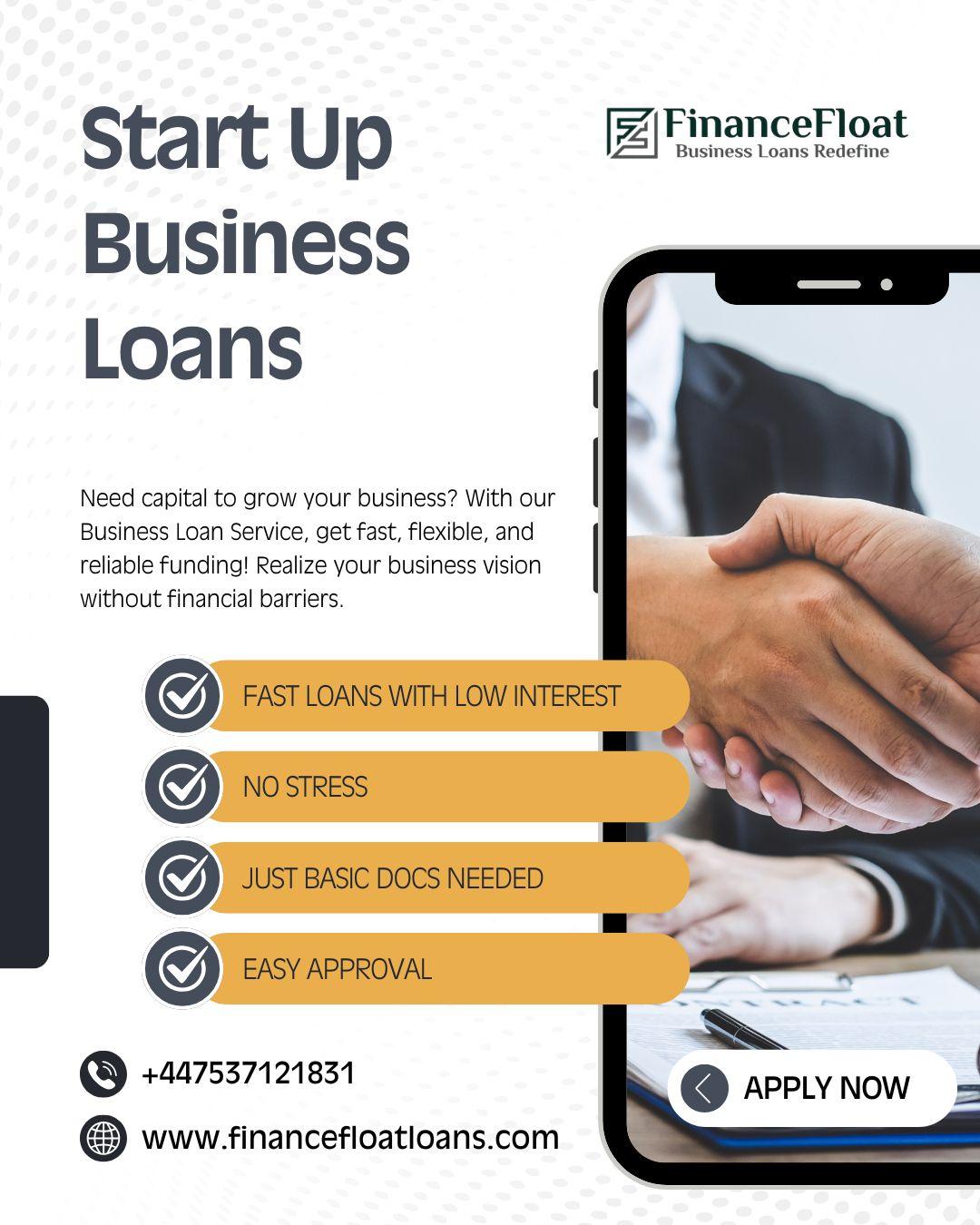Funding Your Entrepreneurial Vision: Start Up Business Loans

Every successful business begins with a groundbreaking idea, but turning that vision into a profitable reality demands a strategic approach, especially when it comes to financing. For new entrepreneurs, a lack of operating history can make traditional lending a near-impossible hurdle. This is where a clear understanding of Start Up Business Loans becomes your most powerful tool.
New companies face a unique and often difficult path in the financial world. They lack the established credit history, proven revenue streams, and tangible assets that traditional lenders typically require. This challenge has, however, driven the development of a diverse financial ecosystem offering a wide array of specialized lending solutions tailored specifically to new ventures. Knowing your options is the key to getting the funding you need to not only launch your business but also to sustain its long-term growth.
The Initial Financial Reality Check
Before you even think about approaching a lender, the first and most crucial step is to get your own financial house in order. This isn't just about showing good credit; it’s about proving your business idea is a sound investment. Begin by creating a detailed financial blueprint. How much capital is truly necessary for your launch, and what will each dollar be used for? This process involves creating a realistic budget that accounts for initial expenses like inventory, marketing, salaries, and equipment. A precise understanding of your financial needs will not only help you target the right type of loan but also demonstrate a level of professionalism and planning that lenders find highly compelling.
Navigating Your Lending Options
The landscape of business lending offers a variety of solutions, each with its own set of advantages. Exploring these options is the next step toward finding the perfect fit for your new business.
-
SBA-Guaranteed Loans: These are loans made by private lenders but are partially guaranteed by the Small Business Administration. The government backing reduces the risk for the lender, which in turn allows them to offer more favorable terms, like lower interest rates and longer repayment periods. They are an excellent resource for startups that may not qualify for conventional loans.
-
Microloans: Often provided by non-profit organizations, these are small loans, typically capped at $50,000. They are an ideal solution for covering smaller but essential startup costs, such as initial inventory, business licenses, or marketing. The eligibility criteria for microloans are often more flexible, making them an accessible option for many entrepreneurs.
-
Business Lines of Credit: A flexible financial tool, a business line of credit provides a pre-approved amount of funds that you can draw on as needed. You only pay interest on the amount you actually borrow, making it an excellent solution for managing short-term cash flow gaps or handling unexpected expenses during the early stages of a business.
-
Equipment Financing: If your business requires specific machinery, technology, or vehicles, this type of financing is a great choice. The equipment you purchase serves as the collateral for the loan, which can simplify the approval process and lets you acquire essential assets without tying up other capital.
-
Invoice Factoring: This option, also known as accounts receivable financing, provides immediate cash flow by allowing you to sell your outstanding invoices to a third-party lender at a discount. This is a valuable way to bridge cash flow gaps and ensure you can cover expenses while waiting for clients to pay their bills.
The Path to a Successful Application
Securing a startup loan requires more than just a good idea; it demands careful preparation and a compelling case. Taking these steps will help you build confidence with lenders and increase your chances of a successful application.
-
Develop a Detailed Business Plan: This is your roadmap for success and a crucial tool for convincing lenders of your business's potential. It should include an executive summary, a comprehensive market analysis, an overview of your team, and detailed financial projections demonstrating how you plan to repay the loan.
-
Strengthen Your Personal Credit: Since your business doesn't have a credit history, lenders will rely heavily on your personal credit score. A strong personal score indicates a history of responsible financial management and can be a deciding factor in both your loan approval and the terms you receive.
-
Organize All Your Documents: Being organized and ready with all the necessary paperwork streamlines the application process and demonstrates your diligence. You should prepare to provide a full set of documents, including personal and business tax returns, bank statements, legal documents, and a list of all key personnel.
-
Have a Clear Collateral Strategy: For many loans, you may need to offer collateral, such as property or equipment, to secure the debt. Additionally, a personal guarantee is a common requirement that signals your unwavering commitment to the business.
Choosing the Right Funding Partner
When you receive a loan offer, it is essential to evaluate it carefully. Look at more than just the interest rate; consider the repayment schedule, any associated fees, and the overall terms of the agreement. The best loan is one that not only meets your immediate funding needs but also aligns with your long-term business strategy. A flexible loan might be ideal for day-to-day operations, while a fixed-term loan might be better for a large, one-time purchase.
With a strategic approach and a clear understanding of your funding options, you can confidently take the financial steps needed to build a successful company. When you are ready to explore a range of funding solutions, consider a company like financefloatloans.com, which specializes in systematic funding for driven entrepreneurs.
- Art
- Causes
- Crafts
- Dance
- Drinks
- Film
- Fitness
- Food
- Games
- Gardening
- Health
- Home
- Literature
- Music
- Networking
- Other
- Party
- Religion
- Shopping
- Sports
- Theater
- Wellness


